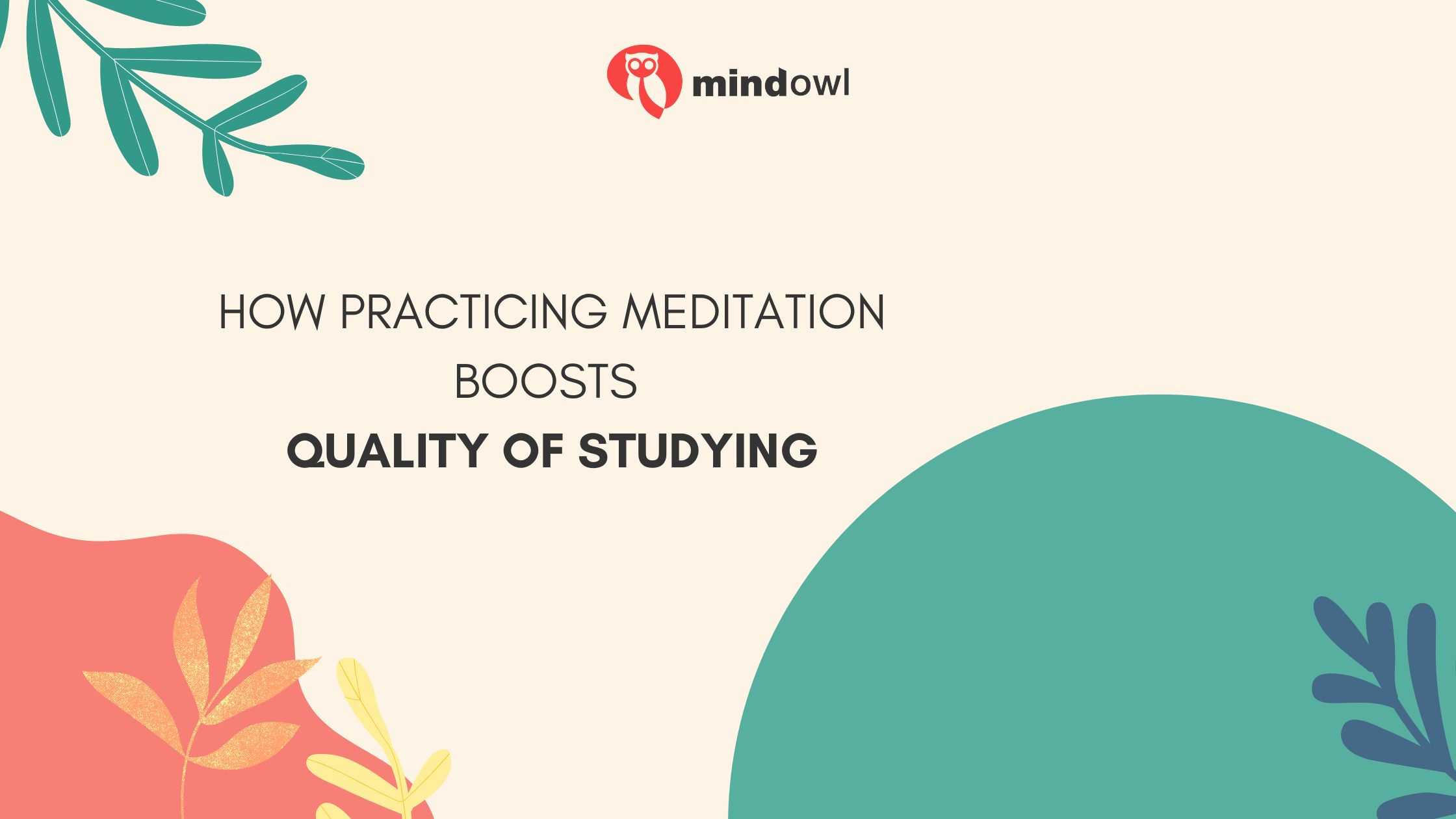
Introduction
In today’s fast-paced world, students are juggling various academic and personal responsibilities. Often this leads to stress, distractions, and difficulty in maintaining focus. But, mindfulness and meditation can improve learning and academic achievement. This article discusses the benefits of mindfulness.
The Importance of Mindfulness in Studying
Studying requires not only acquiring knowledge but also retaining and comprehending information. Mindfulness is the practice of being present and aware of the present moment. It can help students overcome distractions, improve concentration, and reduce stress levels. Students can improve academic performance by studying.
Practicing mindfulness in studying has a direct impact on the quality of assignments. Mindfulness helps pupils focus and produce well-structured, deliberate work. Mindfulness helps students pay attention to their work. It will show that they have a deep understanding of the subject. Mindfulness in the assignment process helps students generate high-quality work. That demonstrates their critical thinking, creativity, and attention to detail.
Moreover, mindfulness reduces the chances of procrastination and promotes a disciplined work ethic. This allows students to manage their time and meet assignment deadlines. Whether completing assignments or using services to pay to do my assignment, applying mindfulness is essential. It ensures that the work produced reflects the students’ unique perspectives and knowledge. Even when seeking professional help. Students can do better on their tasks if they add some mindfulness to them. As well as achieve academic success while cultivating a sense of fulfillment.
Understanding Mindfulness and Meditation
Mindfulness involves bringing attention to the present moment without judgment. It encourages people to examine their ideas, feelings, and experiences without getting involved. Mindfulness meditation helps develop this talent. Meditation helps pupils develop:
- mental clarity;
- tranquillity;
- self-awareness.
Which are crucial for studying.
Benefits of Mindfulness in Studying
Improved Focus and Concentration
One of the primary benefits of mindfulness in studying is the enhanced ability to maintain focus and concentration. Students can reduce distractions and focus on their studies by training their minds to stay present. This heightened focus allows for better absorption and understanding of the subject matter.
Stress Reduction and Emotional Well-being
Studying often comes with its fair share of stress and pressure. Mindfulness acts as a powerful tool to manage stress and promote emotional well-being. Students can cut worry, build resilience, and study by practicing mindfulness. This enables them to navigate challenges more and maintain a positive outlook.
Enhanced Cognitive Abilities
Mindfulness has a positive impact on cognitive abilities essential for effective studying. Regular mindfulness exercise that can help:
⦁ working memory;
⦁ attention span;
⦁ cognitive flexibility.
These cognitive advantages help kids conceive, analyze, and connect ideas, improving academic success.
Better Memory and Information Retention
Mindfulness techniques can enhance memory and information retention. Students strengthen neural connections and improve memory by being present while learning. Mindful learning also involves engaging many senses, such as visualizing concepts. As well as connecting them with personal experiences, which further aids memory formation.
Increased Creativity and Problem-Solving Skills
Mindfulness practices stimulate creative thinking and problem-solving abilities. Mindfulness helps pupils think creatively, problem-solve, and be open-minded. This creative attitude encourages intellectual curiosity and complicated subject understanding.
Improved Learning and Comprehension
Mindful studying involves engaging with the study material, rather than skimming through it. Immersing in the topic helps students understand key concepts and recognize patterns. Mindfulness also encourages a curious and inquisitive attitude. Students may ask questions, seek clarification, and go further into their studies. That will lead to a more profound comprehension of the subject matter.

How to Incorporate Mindfulness into Studying
Creating a Mindful Study Environment
Begin by setting up a study environment that promotes mindfulness. Choose a quiet and clutter-free space where you can focus without distractions. Plants, gentle lighting, and calming music can help quiet and focus your study space. Creating a dedicated space for studying sends a signal to your mind that it’s time to focus and be present.
Mindful Breathing Techniques
Breathe before studying. Close your eyes and bring your attention to your breath. Observe each inhalation and exhalation, letting go of any racing thoughts or worries. Deep, steady breaths can help you focus, calm down, and study better.
Practicing Mindful Listening
When studying, approach the material with a sense of mindful listening. Instead of reading or scanning the text, bring your full attention to the words on the page. Notice your reading pattern, sentence subtleties, and meaning. Listening deepens your understanding and improves retention.
Taking Mindful Breaks
Regular breaks are crucial for maintaining focus and preventing mental fatigue. Use your breaks as an opportunity to practice mindfulness. Step away from your study area for a few minutes and do something thoughtful. Like stretching or going for a walk. Let your mind rest and recover. This will get it ready to focus and learn again.
Conclusion
Integrating mindfulness into your study routine is a valuable method to elevate the caliber of your learning journey. Mindfulness and meditation can improve focus, tension, and cognitive skills needed for studying. Don’t forget to establish a conducive environment for mindful studying. Use techniques like mindful breathing and attentive listening, and incorporate regular mindful breaks. Be present and watch your studies become more enjoyable, productive, and meaningful.
Author’s Bio
Karl Bowman is a seasoned content writer with a strong passion for research and essay writing. With extensive experience in the field, Karl has honed his skills in crafting engaging and informative content across various topics. His dedication to delivering high-quality work and attention to detail make him a valuable asset in the realm of content creation. Karl’s expertise in writing insightful articles reflects his commitment to providing valuable information to readers in an accessible and engaging manner.
MindOwl Founder – My own struggles in life have led me to this path of understanding the human condition. I graduated with a bachelor’s degree in philosophy before completing a master’s degree in psychology at Regent’s University London. I then completed a postgraduate diploma in philosophical counselling before being trained in ACT (Acceptance and commitment therapy).
I’ve spent the last eight years studying the encounter of meditative practices with modern psychology.


